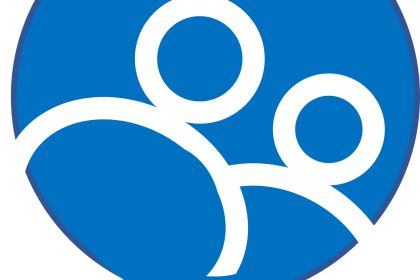
To help certified executive coaches navigate the ethical landscape, we asked nine experts from the fields of psychology, coaching, and executive leadership for their insights. From maintaining client confidentiality and trust to empowering client decision-making, these leaders share their top ethical considerations. Dive in to learn from CEOs, Founders, and other top-tier professionals about the ethical considerations that should be at the forefront of every coaching interaction.
● Maintaining Client Confidentiality and Trust
● Clarifying the Client’s Identity
● Prioritizing Client’s Interests and Transparency
● Exercising Caution in Giving Advice
● Upholding Legal Obligations
● Adhering to Professional Standards and Respect
● Respecting Client Autonomy and Individuality
● Avoiding Conflicts of Interest
● Empowering Client Decision-Making
Maintaining Client Confidentiality and Trust
In my experience as a life coach, focusing on mental health and personal development, an essential ethical consideration for executive coaches is the diligent maintenance of client confidentiality.
This doesn’t just mean keeping sessions private but extending that respect to any information shared. It’s more than an ethical rule; it’s a way to build trust, which is the bedrock of any coaching relationship. By doing so, I establish an environment where clients feel safe to express themselves, facilitating their personal and professional growth and development.
Bayu Prihandito, Psychology Expert, Life Coach, Founder, Life Architekture
Clarifying the Client’s Identity
When a manager approves the budget and a company pays the fee, false assumptions can arise about who is actually the client. Such misunderstandings can manifest into everything from confidentiality concerns to an ancillary stakeholder’s desire to steer the outcome of the engagement.
To avoid such ethical entanglements, make it known at the start that the client is always the person being coached. Then, use participant agreements to clarify business rules on data sharing. A little preparation and upfront communication will help you avoid ethical issues in the first place.
Tim Toterhi, CHRO, Plotline Leadership
Prioritizing Client’s Interests and Transparency
Certified executive coaches wield significant influence because of their in-depth understanding of individual and organizational psychology. This power, coupled with access to confidential information like potential layoffs or changes in corporate strategy, creates a potent mix that requires ethical oversight.
The critical ethical consideration here is maintaining an unwavering focus on the client’s interests. This approach could mean helping the client ask and answer the right questions, rather than providing advice directly. Or, if advice is warranted, it’s essential to transparently explain the thought process and subjective reasons behind the guidance.
For instance, “If I were in your shoes, this would be my approach. However, keep in mind that my experiences are specific to different industries and organizations. It may not be the right course of action for you.
Rafael Sarim Özdemir, Founder and CEO, Zendog Labs
Exercising Caution in Giving Advice
A business coach may be contracted by a company leader to help a subordinate develop skills. Yet, when you’re in the workplace, you have to be circumspect with whom you give free advice. Is your commitment to the client, the client’s employee, or the company as a whole? Knowing when to provide your expertise and when to simply be cordial is important.
Marnix Broer, Co-Founder and CEO, Studocu
Upholding Legal Obligations
One ethical consideration that certified executive coaches should keep in mind is the importance of client confidentiality. For example, it is important for an executive coach to be aware of their legal obligations for sharing protected health information under HIPAA laws.
An executive coach must only share these kinds of details with the patient’s written permission or if required by law. Even discussing sensitive topics such as work culture or employee performance outside of an appropriately secure environment poses a risk and can invite unwanted third-party attention. Protection of client data and privacy is an essential part of upholding the integrity and trustworthiness expected from a professional executive coach.
Julia Kelly, Managing Partner, Rigits
Adhering to Professional Standards and Respect
Certified executive coaches have a responsibility to act professionally while providing coaching services. This includes adhering to professional standards and guidelines, as set forth by the International Coaching Federation (ICF).
Additionally, coaches should conduct themselves with integrity and respect for their clients at all times. They should be courteous, approachable, and create a safe and supportive environment for their clients. In addition, coaches should never make judgments or offer advice; they should instead help the client identify solutions and strategies on their own.
Ryan Hetrick, CEO, Epiphany Wellness
Respecting Client Autonomy and Individuality
Certified executive coaches should prioritize client autonomy and boundaries by respecting individuality. Instead of forcing your values or beliefs onto clients, create an open space so they can explore their perspectives and goals freely without judgment from coach to client.
Keep in mind that coaching is not an instrument of control over others but should instead empower clients to be proactive in their personal and professional growth.
Karl Robinson, CEO, Logicata
Avoiding Conflicts of Interest
Many executive coaches work with several clients at the same time. This can often lead to conflicts of interest, especially if all their clients are in the same industry or market.
An executive coach must disclose any conflicts of interest as soon as they arise. Before they begin their mentorship, they should discuss these conflicts. At the very least, they should simply state that they work with other clients that may or may not result in such conflicts.
Brian Hardesty, Owner, On Display Signs
Empowering Client Decision-Making
Empower clients to make their own decisions during coaching. Coaches provide guidance, but clients are the decision-makers.
This helps clients take ownership, find solutions that fit their values, and build trust. Coaches must avoid imposing their beliefs and instead foster self-discovery and understanding. This makes coaching more meaningful and allows clients to drive their professional journey.
Normand Chevrette, President and CEO, CME Corp.




